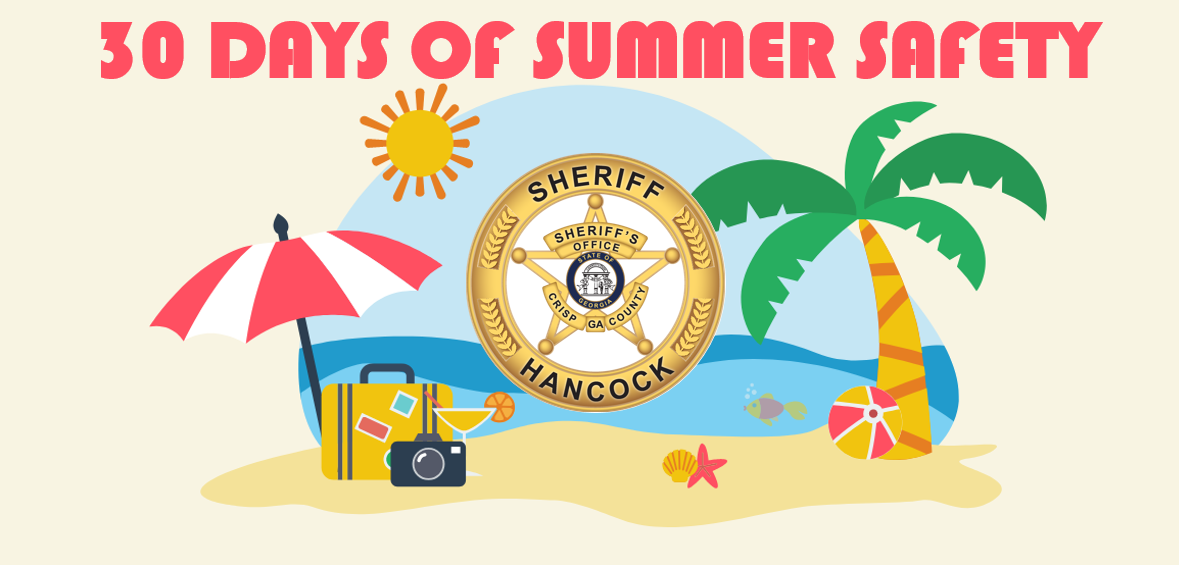Day 8
Look Before you Lock
Heatstroke is the number one killer of children, outside of car crashes.
As temperatures across the country continue to escalate above average highs, it is more important than ever to understand the health effects for children. Infants and young children are particularly sensitive to the effects of extreme heat and must rely on others to keep them safe. When left in a hot vehicle, a young child’s body temperature can increase three to five times as quickly as an adult’s.
Here are a few simple things you can do:
- Make it part of your everyday routine to account for all children in your care. Set up backup systems to check and double check that no child is left in the vehicle. Never leave a child unattended in a vehicle—even if the windows are partially open or the engine is running with the air conditioning on. Vehicles heat up quickly; if the outside temperature is in the low 80s, the temperature inside a vehicle can reach deadly levels in only 10 minutes, even with a window rolled down 2inches.
- Always make a habit of looking in the vehicle—front and back—before locking the door and walking away.
- Get in touch with designated family members if a child who is regularly in your care does not arrive as expected.
- Create reminders to ensure that no child is accidentally left behind in the vehicle. Place an item that is needed at your final destination in the back of the vehicle next to the child or place a stuffed animal in the driver’s view to indicate that a child is in the car seat.
- Call 911 or your local emergency number immediately if you see a child alone in a hot vehicle. If he or she is in distress due to heat, get the child out as soon as possible and cool him or her down rapidly.
Day 9
Before You Travel – Pack and Emergency Roadside Kit
- Cell phone and charger
- First aid kit
- Flashlight
- Flares and a white flag
- Jumper cables
- Tire pressure gauge
- Jack (and ground mat) for changing a tire
- Work gloves and a change of clothes
- Basic repair tools and some duct tape (for temporarily repairing a hose leak)
- Water and paper towels for cleaning up
- Nonperishable food, drinking water, and medicines
- Extra windshield washer fluid
- Maps
- Emergency blankets, towels and coats
(Source: https://www.nhtsa.gov/summer-driving-tips-2019)
Day 10
Vacation Safety
• Share WISELY on SOCIAL MEDIA
• Make sure all locks on the doors and windows function correctly- USE THEM.
• Request increased patrol for your home (https://crispcountysheriff.com/comm…/vacation-patrol-request)
• Have someone you trust to check on things.
• If you have an alarm system- USE IT.
Day 11
Drive Sober or Get Pulled Over
Every day, almost 30 people in the United States die in drunk-driving crashes — that's one person every 50 minutes. These deaths have fallen by a third in the last three decades; however, drunk-driving crashes claim more than 10,000 lives per year. In 2010, the most recent year for which cost data is available, these deaths and damages contributed to a cost of $44 billion that year.
Day 12
Don't drink and boat!
The Georgia Boat Safety Act prohibits anyone from boating under the influence (BUI) -- that is, operating any boat, sailboat, personal watercraft, water skis, sailboard or similar device while intoxicated.
It is also unlawful for the owner of a boat or PWC to allow anyone else to operate their boat or PWC while that person is under the influence of alcohol or drugs.
Georgia boating law states:
- It is illegal for those under the age of 21 years to operate a boat or PWC if their blood alcohol level is 0.02 or more
- Those 21 years of age or older are considered to be under the influence, and may not operate a boat or PWC, if their blood alcohol level is 0.08 or more or if drugs are detected.
The Georgia Boat Safety Act sets these penalties:
- Those arrested for boating under the influence may lose their privilege to operate a boat or PWC until they successfully complete a DUI Alcohol or Drug Use Risk Reduction Program approved by the Department of Driver Services. They will also be charged with a misdemeanor punishable by fines up to $1,000 and/or prison time up to one year
- By operating a boat or PWC on Georgia waters, you have consented to be tested for alcohol or drugs if requested by a law enforcement official. If you refuse to be tested, you will lose your privilege to operate a boat or PWC for up to one year and your refusal may be offered into evidence against you at a trial
- A person found operating a boat or PWC under the influence while a child under the age of 14 years is on board, is also guilty of the separate charge of endangering a child
Source: https://gadnrle.org/bui

